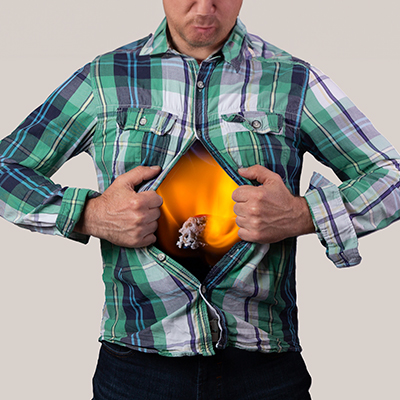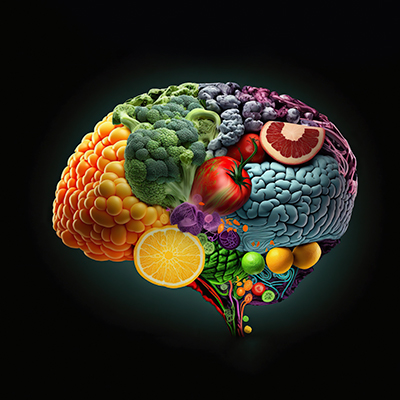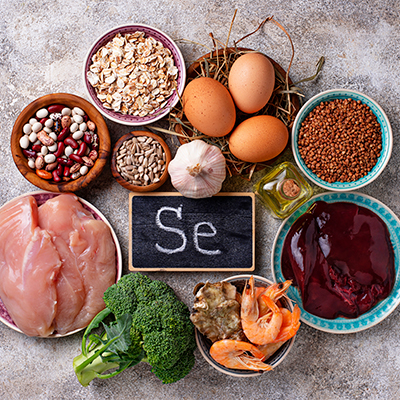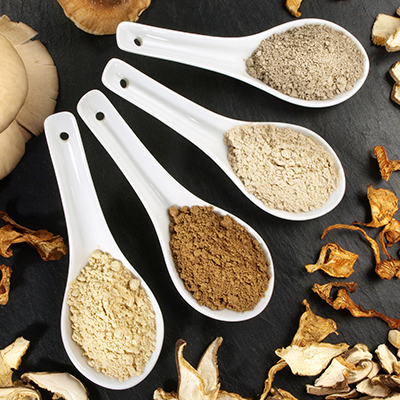Hormones
All information about "Hormones" and the related magazine articles can be found here.
Our articles are written clearly and link to scientific studies where relevant. This is how we meet our own standards: we regularly deliver new, high-quality content for you—free of charge, no sign-up required, with the highest possible benefit to you.

Heartburn - an annoyance and a burden!
Many people suffer from heartburn after a hearty meal. You have a glass of wine or beer, treat yourself to a nice dessert or even a little digestive liqueur - and there it is again: a sharp pain, pressure in the stomach and sometimes even nausea: heartburn!

Vitamin B1 deficiency - here too
B vitamins are essential for our bodies! Not only do many metabolic processes depend on them, but so do our nerves. If you think vitamin B1 deficiency is only a problem in developing countries, think again! Find out more here.

Tribulus Terrestris is often promoted for muscle building and libido.
When it comes to muscle building and sexual health, many people prefer Tribulus Terrestris to synthetic products. But what about the real effects of the natural supplement?

Iron deficiency anaemia
Iron is an essential trace element. But why is it so important for survival and how is it linked to anaemia or even depression? Here we explain the most important consequences of iron deficiency!

Collagen hydrolysate - what to look out for
Hydrolysed collagen is more easily absorbed by the body than normal collagen. All you need to know about the supplement

Diet for osteoarthritis - how supplements can help
Now there is support for the joints - with a healthy diet and the right supplements.

Irritable bowel syndrome - causes, symptoms and treatment

Acidic foods
What is an acid-base balance? And how can I achieve it? Which foods are metabolised in an acidic way and which in an alkaline way? Our report answers the most important questions on these topics!

SAMe - for more energy and a better mood
Learn how the amino acid S-adenosylmethionine (SAMe) can support your mood, energy levels and liver function.

Why the body needs a good supply of selenium
Immune defence, the cardiovascular system and the thyroid - the trace element selenium plays an important role in many bodily functions.

Lose weight with amino acids
We have learned that our muscles use energy. The more muscular the body, the more energy it can use. Find out how amino acids are involved here!

Tryptophan - for wellbeing and sleep

What should people with diabetes not eat?
Everyone talks about sugar, but what does it mean when blood sugar levels become a serious problem? Find out all you need to know about diabetes!

Nattokinase - what is the fibrinolytic protein?
The enzyme nattokinase, derived from the soya bean dish natto, is believed in Japan to be one of the reasons for longevity. Find out more here!

Copper deficiency - causes, symptoms and long-term effects
Copper is essential for our health. Not only does the immune system need this trace element, but many other processes in the body do too. Find out here why a copper deficiency is often discovered too late and what the consequences are!

Myo-inositol - how does it affect us?
Hormonal imbalance can have a major impact on many processes. What exactly does it mean when our own production decreases and how can I support my health in this regard?

Calcium or calcium - the important thing is to take it!
Find out what this important mineral is involved in in the body and which is the better form of calcium here!

How a detox works
The human body works around the clock to eliminate harmful substances and toxins. But when there are too many toxins in the system, it needs help.

Alkaline diet
The pH of our organs plays an important role in our health. But how does our diet affect our body's acid-base balance?

How can I tell if I have a vitamin deficiency?
Tired, exhausted, aching limbs? A vitamin deficiency can take many forms, but is usually easy to treat. Find out what to look out for.

Often in short supply in winter - Vitamin D
Vitamin D is a real all-rounder when it comes to health: it ensures healthy bones and is involved in many processes in the human body.

Still unknown to many - medicinal mushrooms
Many people in Europe are still unfamiliar with the use of so-called medicinal mushrooms, but these mushrooms are an integral part of many traditional diets. Find out what they are called and what powers they have.

When the immune system needs a boost
Our immune system is usually good at fending off invaders. But how can we strengthen it so that it continues to work well under high levels of stress?

Get through the autumn and winter safely!
Colds are hard on the mind and body. Read here to find out how you can protect yourself against colds and give your body extra support.
All about Hormones: Your Key to a Balanced Life
Have you ever wondered why you sometimes feel energised and focused, while other days you are tired and irritable? The answer often lies in the complex workings of our hormones. They work in the background and influence our organs and our well-being. In our guide to hormones – the key to a balanced life – you will learn how these invisible regulators shape your everyday life and how you can optimise your hormonal balance to get the best out of every day.
What role do hormones play in the human body?
The human hormone system has a very complex structure. The most important hormones play a central role in controlling and regulating a variety of vital bodily functions: These chemical messengers are produced by various endocrine glands (hormone glands) and released into the bloodstream to interact with specific target cells in the body and achieve a specific effect.
Through these interactions, the important neurotransmitters influence a variety of processes, including body growth and development, metabolic functions, reproduction, mood and responses to stress [9]. They also help to adjust the body to external and internal changes and maintain a homeostatic balance [9]. In short, the hormonal system is crucial for maintaining a healthy and functioning organism.
How are hormones produced and regulated?
Various hormones regulate our metabolism, body temperature, salt and water balance, circulation, behaviour and much more [1]. But how does the body know which different hormones it should produce in order to be in balance? Hormones are produced by hormone glands (endocrine glands). These glands, such as the thyroid, adrenal glands and pancreas, are part of the endocrine system and are responsible for synthesising and releasing specific hormones. The production and release of our own hormones occurs in response to complex feedback mechanisms that are influenced by various factors such as the nervous system, other hormones in the body and external environmental factors [4].
This regulation ensures that hormone levels remain within an optimal range to support the body's functions. So-called regulatory circuits control the production of most hormones. The various endocrine glands stimulate or inhibit each other [7]. Hormones can also act on their own gland of origin or a higher-level gland and influence the quantity of hormones. Many hormones of the hypothalamus are also regulated with the help of such ‘feedback loops’, in which the amount of a hormone that has already been produced promotes or curbs its own production. The hypothalamus is a part of the brain that plays an important role in controlling the endocrine system, producing hormones that stimulate or inhibit the pituitary gland to release other hormones [7].
What are the different types of hormones?
There are different types of hormones in the body, including steroid hormones, peptide hormones, amino acid derivatives and thyroid hormones [9]. These are produced by various endocrine glands (hormonal glands) and tissues and regulate a variety of physiological processes. Steroid hormones such as oestrogen and testosterone influence reproductive and metabolic functions.
Peptide hormones such as insulin and glucagon are crucial for the regulation of blood sugar levels and energy metabolism. Amino acid derivatives such as adrenaline and thyroxine have an effect on metabolism, heart rate and energy production. Thyroid hormones such as thyroxine regulate metabolic functions and body growth.
How do hormones affect mood and emotions?
Certain hormones influence mood and emotions by acting on the nervous system and the brain [9]. Serotonin, for example, a neurotransmitter often associated with happiness and well-being, can be influenced by hormones. An imbalance of cortisol, for example, which is released during stress, can lead to mood swings. Certain hormones such as oestrogen and progesterone, which vary during the menstrual cycle, can also affect mood.
What are the effects of hormones on metabolism and weight?
Other hormones such as insulin, thyroid hormones and cortisol directly affect metabolism by controlling the absorption, storage and utilisation of nutrients such as carbohydrates, fats and proteins [10]. Insulin, for example, lowers blood glucose levels by transporting glucose from the blood into the cells where it is used for energy or stored as glycogen.
An imbalance of these hormones can affect metabolic processes in the endocrine system, which can lead to metabolic disorders such as diabetes or hypothyroidism, which in turn can be linked to weight gain [11]. Certain hormones such as leptin and ghrelin influence feelings of hunger and satiety by signalling to the brain when we should eat and when we feel full. If this regulatory system is disrupted, this can lead to food cravings, overeating and weight gain.
What influence do hormones have on the menstrual cycle?
Hormones such as oestrogen and progesterone regulate the menstrual cycle. During the cycle, hormone levels rise and fall, which influences ovulation, the thickness of the uterine lining and the onset of menstruation. At the beginning of the menstrual cycle, the ovaries tend to produce less oestrogen, whereas shortly before ovulation they produce a lot [2]. Oestrogen stimulates the formation of the uterine lining, while progesterone supports its build-up and is important for preparing for a possible pregnancy. If fertilisation does not take place, hormone levels fall, which leads to the shedding of the uterine lining and the onset of menstruation.
Many women find the time before and during their menstruation problematic and painful. Find out here how magnesium can support you with menstrual cramps.
How can hormones influence growth and development?
Hormones play an essential role in human growth and body development by regulating various organ systems and controlling important processes such as bone growth, muscle development and reproductive maturation. Testosterone in particular is crucial as it regulates sex differentiation during embryonic development and puberty, promotes secondary sexual characteristics such as penile growth and sperm production, influences the transformation of vellus hair into mature hair follicles and supports both muscle growth and bone formation [3].
What endocrine disorders are there and how are they treated?
There are various disorders of the endocrine system that can affect the body and health. Some of the most common hormonal disorders are [12]:
Underactive thyroid (hypothyroidism): This is where the thyroid gland does not produce enough of the thyroid hormone thyroxine, which can lead to symptoms such as fatigue, weight gain and dry skin. The thyroid gland is often treated by taking thyroid hormone supplements. Selenium can also be used as a supportive measure.
Hyperthyroidism (overactive thyroid): This is the opposite of hypothyroidism, in which the thyroid gland produces too much thyroid hormone thyroxine. Symptoms can include weight loss, nervousness and an accelerated heartbeat. Treatment may include medication, radioiodine therapy or, in some cases, surgery.
Diabetes: Diabetes is a metabolic disorder characterised by a lack of insulin or insulin resistance. Treatment often involves a combination of dietary changes, physical activity, medication and insulin injections.
Adrenal insufficiency: With this problem, the adrenal glands do not produce enough hormones such as cortisol and aldosterone. Treatment usually consists of lifelong intake of hormone replacement preparations.
Pituitary disorders: The pituitary gland in the brain produces various hormones that regulate the human body. It is controlled by the hypothalamus. Impairments in this area can lead to a variety of problems, including an imbalance in other hormone production. Treatment depends on the specific impairment of the endocrine system and may include the administration of replacement hormones, medication or, in some cases, surgery.
The treatment of endocrine disorders is usually carried out under medical supervision and is based on the identification of the underlying cause and a personalised therapy.
What role do hormones play during pregnancy?
During pregnancy, hormones play a crucial role in the regulation of various physiological processes. They not only influence the development of the foetus, but also the adaptation of the mother's organs to the pregnancy. Hormones such as oestrogen and progesterone help to build up the uterine lining and prepare it for implantation of the fertilised egg [13].
During pregnancy, the body also produces hormones such as hCG (human chorionic gonadotropin), which supports the production of progesterone and maintains the pregnancy. Other hormones such as prolactin prepare the breasts for milk production [13]. Overall, hormones regulate a variety of processes during pregnancy that are crucial for the well-being of mother and child. Hormone production takes place in various organs such as the ovaries and the pituitary gland.
How can we regulate and balance hormones naturally?
Regulating and balancing hormones can be achieved naturally through various lifestyle and dietary adjustments:
Regular physical activity: exercise can help regulate hormone levels and improve well-being [14].
Adequate sleep: An adequate amount of sleep is crucial for hormone production and maintaining balance [15].
Stress management techniques: Meditation, yoga and relaxation exercises can help reduce stress and support hormone balance [16].
Balanced diet: A diet rich in vegetables, fruit, wholemeal products and healthy fats can help regulate hormones [17]. Try an alkaline diet.
Limit sugary and processed foods: Reducing sugary and processed foods can help minimise fluctuations in blood sugar levels and improve hormone balance [17].
Certain herbs, supplements such as omega-3 fatty acids and vitamins can also support hormone balance. However, before taking supplements, it is advisable to consult a doctor to consider possible interactions or contraindications.
[1] https://www.internisten-im-netz.de/fachgebiete/hormone-stoffwechsel/regulation-der-hormone.html
[2] https://www.internisten-im-netz.de/fachgebiete/hormone-stoffwechsel/hormondruesen-und-moegliche-erkrankungen/hypothalamus/
[3] https://www.hormonspezialisten.de/sexualhormone/testosteron/funktionen
[4] https://www.studysmarter.de/studium/medizin/innere-medizin/endokrines-system/
[5] https://www.msdmanuals.com/de-de/profi/endokrine-und-metabolische-krankheiten/grundlagen-der-endokrinologie/%C3%BCbersicht-%C3%BCber-das-endokrine-system
[6] https://flexikon.doccheck.com/de/Endokrines_System
[7] https://www.spektrum.de/lexikon/ernaehrung/endokrine-regulation/2470
[8] https://www.bund.net/fileadmin/user_upload_bund/publikationen/fluesse/fluesse_hormonaktive_substanzen_hintergrund.pdf
[9] https://www.endocrine.org/-/media/endocrine/files/patient-engagement/misc_other/hormone_guide_5x5_grid_25x25_english.pdf
[10] https://pubmed.ncbi.nlm.nih.gov/9556085/
[11] https://www.deutsches-schilddruesenzentrum.de/gut-leben-mit-diabetes-experteninterview-mit-prof-zieren/
[12] https://www.frauenaerzte-im-netz.de/erkrankungen/hormonstoerungen/therapie/
[13] https://www.yourhormones.info/topical-issues/hormones-of-pregnancy-and-labour/
[14] https://www.tk.de/techniker/magazin/life-balance/aktiv-entspannen/stress-abbauen-mit-sport-und-bewegung-2093232?tkcm=ab
[15] https://www.aerzteblatt.de/archiv/1375/Neue-Erkenntnisse-der-Chronobiologie-Wie-Hormone-Schlaf-und-Stoffwechsel-regulieren
[16] https://www.daserste.de/information/wissen-kultur/w-wie-wissen/sendung/2012/entspannung-102.html
[17] https://www.hans-riegel-fachpreise.com/fileadmin/hans-riegel-fachpreise/Module/ausgezeichnete-arbeiten/hans-riegel-fachpreise-seminararbeit-vwa-2020-Rathke.pdf
